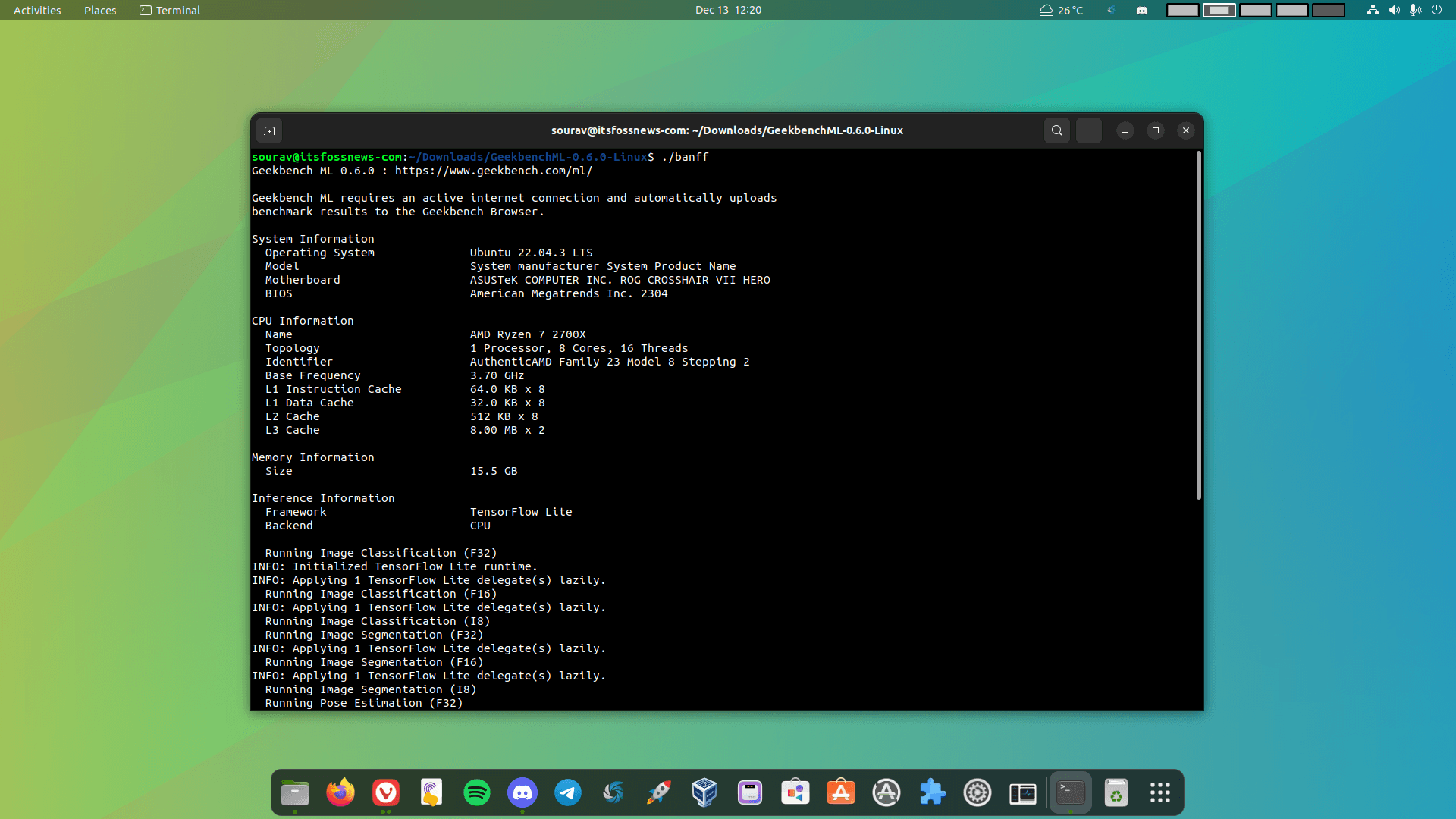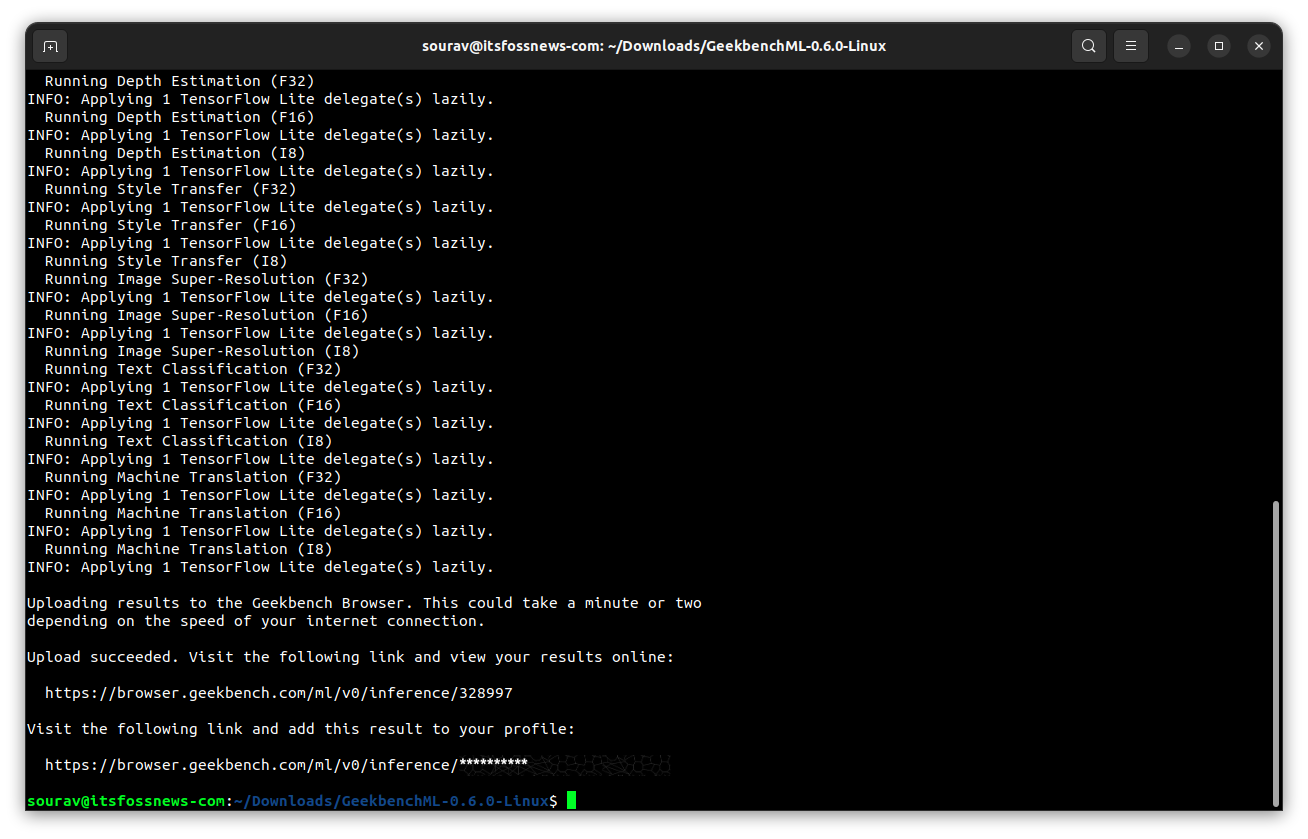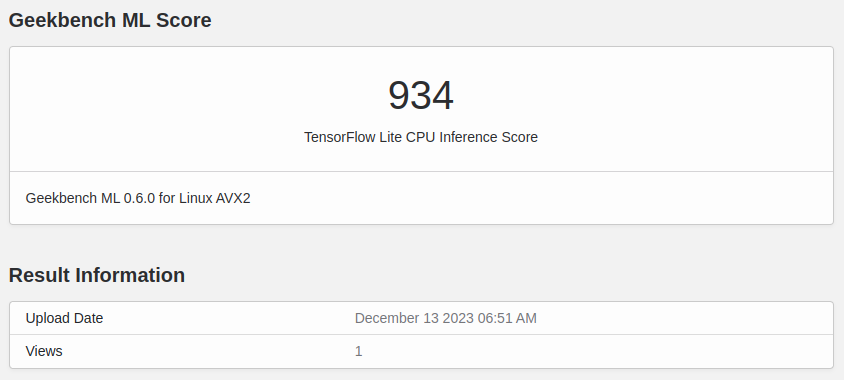
In a year when we have seen a new AI alliance being formed, and some questioning the open-source definition for AI models, we are still seeing plenty of new developments.
One such development has been in the field of AI benchmarking, the popular Geekbench ML has done something really cool with its latest release.
What's Happening: With a recent announcement, Primate Labs have announced the release of Geekbench ML 0.6, with an early Christmas gift in the form of support for Linux.
Released as a preview version, this release of Geekbench ML is now available for Linux, Windows, and macOS.
What to Expect: Well, for starters, you can expect the benchmarking experience to be the same across all the platforms, as they all use the same models and data sets.
Which, by the way, have been improved thanks to the implementation of new frameworks that bring in upgrades to Geekbeench's internal version of TensorFlow Lite.
They have also added three new types of workloads with the Geekbench ML 0.6 release:
- Depth Estimation, a workload that will help simulate common camera software effects.
- Style Transfer, a workload that will simulate how generative AI functions for common use cases such as copying the style of a photo to create something different.
- Image Super-Resolution, a workload that will simulate AI-powered image upscaling.
But, there is one important thing to note. For Linux, there is no graphical user interface (GUI) with Geekbench ML 0.6, users will have to make do with a command-line-tool; more on that later.
So, even though we are still a bit away from the Geekbench ML 1.0 release, which is planned to be made available sometime in 2024, this is a decent one that has some niggles here and there. But, I am glad to see that they are providing a port for Linux.
Seeing as we are on the topic; do you want to run Geekbench ML on your Linux system?
Here's How to Run a Geekbench ML Benchmark
Well, firstly, you will have to download the tar.gz archive from the Geekbench site (linked below).
Thereafter, extract it, open a terminal window in the same directory, and run the following command:
./banff
It should then start running the benchmark, you will be shown which model and data sets are being run in real-time.

After the benchmarking is done, a confirmation with a prompt will be shown, that guides you to view the benchmarking results online.

You can find my benchmarking results on Geekbench Browser, I admit it is not much, but, it is my system's humble score 😄
For running Geekbench ML on Linux, the developers recommend the following system requirements:
- CPU: AMD or Intel
- RAM: Minimum 2 GB
- OS: Ubuntu 18.04 LTS (64-bit) or later
You can grab the tar.gz from the official website, just extract it and get started.
💬 I really hope they add a GUI with the future releases of Geekbench ML for Linux. What do you think?
- Even the biggest players in the Linux world don't care about desktop Linux users. We do.
- We don't put informational content behind paywall. Your support keeps it open for everyone. Think of it like 'pay it forward'.
- Don't like ads? With the Plus membership, you get an ad-free reading experience.
- When millions of AI-generated content is being published daily, you read and learn from real human Linux users.
- It costs just $2 a month, less than the cost of your favorite burger.
Become a Plus Member today and join over 300 people in supporting our work.









